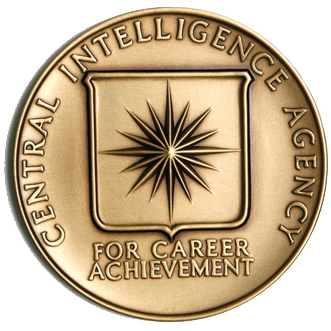| Career Intelligence Medal | |
|---|---|
 | |
| Awarded for | "For a cumulative record of service which reflects exceptional achievements that substantially contributed to the mission of the Agency." |
| Country | United States of America |
| Presented by | Central Intelligence Agency |
| Eligibility | Employees of the Central Intelligence Agency |
| | |
| Precedence | |
| Next (higher) | Distinguished Career Intelligence Medal |
| Next (lower) | Career Commendation Medal |
The Career Intelligence Medal is awarded by the Central Intelligence Agency for a cumulative record of service which reflects exceptional achievements that substantially contributed to the mission of the Agency. [1]